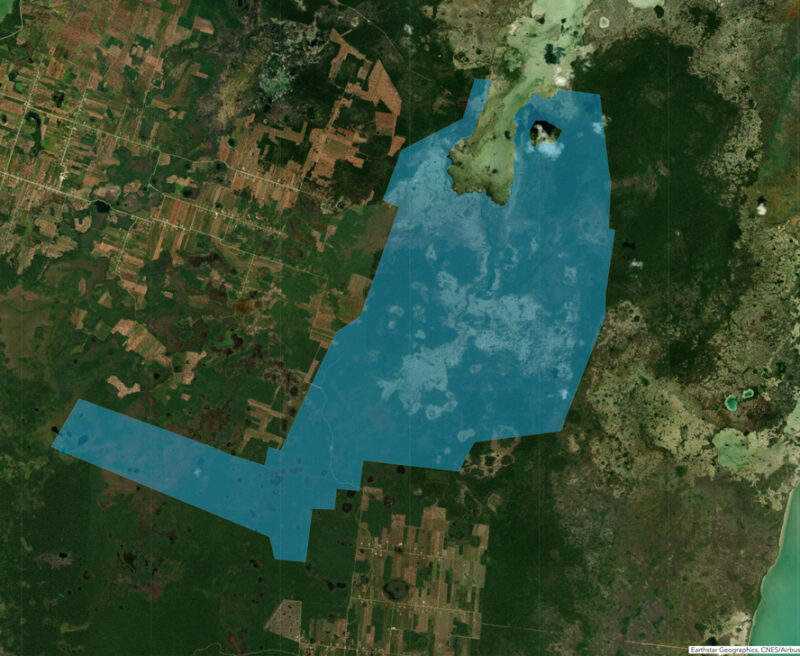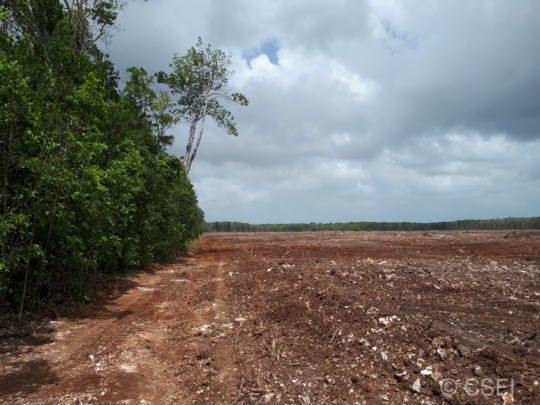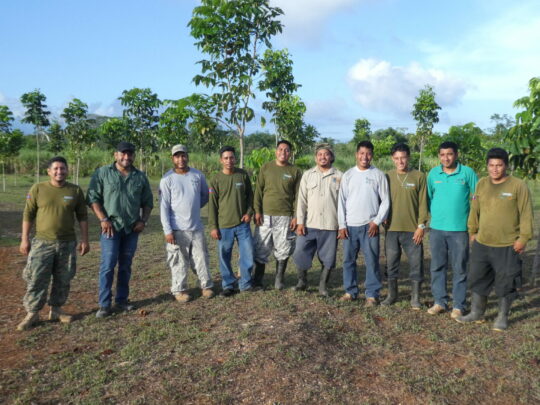North-eastern Biological Corridor

The North-eastern Biological Corridor aims to protect an area of approximately 88,500 acres in northern Belize, conserving a huge area of tropical forest and lagoons, that would otherwise be lost to deforestation.
CSFI currently manage around 58,000 acres of habitat within the corridor, situated in Belize’s Corozal department, including three protected areas – Shipstern Nature Reserve, Freshwater Creek Forest Reserve and Honey Camp National Park.
World Land Trust’s Jungle for Jaguars appeal raised funds to purchase 8,154 acres, and our Buy an Acre programme is supported the purchase of a further 1,818 acres, at £100 per acre, in April 2019.
Tropical & Subtropical Moist Broadleaf Forests
Yucatán moist forests
The entire area forms part of the Yucatan Platform and is underlain by massive beds of limestone. The three major ecosystems are Broadleaf Forests; Pine savannah; and wetlands, lagoons and areas of mangrove
Land Purchase
These forests are an important stronghold for Jaguars, with 27 individuals recorded in the area, identified from their unique rosette markings using camera traps.
The corridor is also home to Baird’s Tapir and Geoffroy’s Spider Monkey, both classified as Endangered, as well as the other four species of Belize’s wild cats (Ocelot, Margay, Puma and Jaguarundi).
Bird species such as Ornate Hawk-eagle, Black Catbird, Keel-billed Toucan make their home within the Belizean jungle, alongside many species of hummingbirds.
The flora in the area is equally diverse, with rare forest types only found in a few isolated areas across the Yucatan Peninsula.
The North-eastern Biological Corridor in Belize was created to connect Shipstern Nature Reserve with Freshwater Creek Forest Reserve and Honey Camp National Park. This corridor is extremely important as it allows large animals, such as Jaguar (Panthera onca) and Baird’s Tapir (Tapirus bairdii), enough space to move freely between protected areas.
A population of 27 Jaguar indicates a healthy and diverse ecosystem making this area criticially important to protect on a regional and global level.

The North-eastern Biological Corridor faces a threat from illegal and unsustainable clogging and forest clearance for large-scale agriculture.
There is a high risk of habitat destruction through fire, a threat which has increased in recent years.

WLT partner, CSFI place high importance on community engagement, scientific research, environmental education, strategic alliances and co-management agreements. Their ultimate goal is the creation of new sustainable economic models for the benefit of the people of Belize.
Rangers are employed from the local community and CSFI ecotourism initiatives aim to support not only sustainable conservation but also livelihoods of local communities.